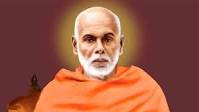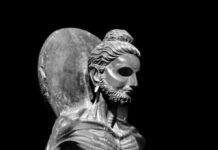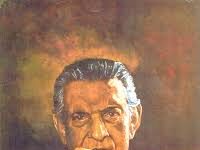 Dear Jeyamohan,
Dear Jeyamohan,
I was listening to your discourses on Vedanta and Indian thought. I had a prolonged question in my mind about Vedanta. Maybe this question will be in the minds of everyone who emerged from the lower levels of our society.
A philosophy should give the basic lessons to the society it emerged in, and it should fight to abolish the evils of it. I know Vedanta is a great philosophy, but why did it never try to abolish the major evil of our society, i.e., ie caste system? Why did it fail to teach its followers the righteous way?
Buddhism and Jainism in India actively opposed the caste system and attempted to transform society through their wisdom. Why is this big difference there? Why did Advaita morally fail?
I was a student of Swamy Sidbhavananda, and I am asking this question to him in my mind every everyday.
K. Sithan
Dear Sithan,
This question is based on many preconceived notions that were created by our early Indologists, who had strong psychological ties to Western culture and a disconnect from Indian culture. They thought that Indian culture was redundant and imagined the reason for this staticness was Vedanta. They comfortably ignored that the land of India was robbed and devastated by continuous occupations and war because they also belonged to another kind of occupation. Politicians propagated this idea, which has now gained popularity here.
But the truth is totally another one, and we must have a wider historical and philosophical mental picture to understand this.
The first point to understand is that the concept of human equality is neither perennial nor natural. It emerged as an idealistic notion in philosophy and spiritual thought and slowly became a social thought. The sociopolitical idea of human equality emerged in Europe only in the eighteenth century, and it was theoretically accepted by a small minority of people only in the nineteenth century. It became a political and social reality only in the twentieth century.
Before that period, human beings were not considered equal in any society or civilization in the entire world. While these Indologists were preaching to us about equality and accusing our tradition of imposing caste discrimination, slavery was a popular practice throughout their Christian world, and the slave trade was actually approved by the Christian church. Yet they never accused Christian doctrine of it or blamed it for not fighting against it.
In fact, all ‘civilized’ societies practiced slavery. Plato advocated for it. All the great Greek philosophers lived in a society where slavery was a part of the system. Until the eighteenth century, slavery was a natural phenomenon in the Western world. Can we dismiss the entire Greek and Christian philosophy?
The caste system was a form of slavery that existed in India. Before the invention of automatic machines, slavery was considered a natural element of economics by all of humanity. The entire human civilization was created by the surplus generated from the slavery system.
Obviously, the doctrine of equality was not a social problem at that time. Philosophers at that time were more concerned with other problems of their era. For the past three thousand years, the major problem of the Indian subcontinent has been achieving conformity among various tribes and micro-societies. Even today, India has thousands of tribal communities and societies. We can easily imagine what life was like here three thousand years ago.
The major challenge Vedanta faced was uniting different faiths and methods of worship under one vision and thus uniting thousands of tribes and societies as big communities and nations. It was the greatest unifying factor that created India. If Vedanta didn’t play this historical role, India would be either like Europe, where all micro-communities and their cultures were wiped out, or like Africa, where unending tribal wars were devastating the entire civilization.
Vedanta provided a central vision that united thousands of faiths and lifestyles into one grand system, without losing the identity of any one, and gave space for every faith to discuss with others and flourish. Indeed, it is a significant achievement in the history of mankind. No thinking person can dismiss this fact.
Vedanta has the idea of human equality at its core; the Vedic line ‘Vasudeiva Kudumbagam’ (the world is a single family) gives that vision. Many stories in the Mahabharata, such as Nagusha Prasna, and in the Upanishads, like the story of Satyakama Jabala, are older than Jainism and Buddhism; these stories strongly oppose the caste system and advocate for human equality.
Your belief about Jainism and Buddhism was not true. Indeed, Jainism and Buddhism oppose caste discrimination as a concept, but they never advocated for human equality. It was not possible at that time because the preferences of society were entirely different. Even today, Buddhist countries have different kinds of caste systems, and Buddhism advocates for that.
When the focus shifted to human equality, Advaita was the first to oppose and fight against the caste system. We have to remember thousands of Advaitic sanyasis who devoted their lives to that cause. We have to honor the memory of outstanding teachers like Vivekananda and Narayana Guru. It is important to remember that Christianity formally accepted the idea of human equality only after Vedanta. The human rights movement in the USA started twenty-five years after India legally accepted human equality.
How did an ancient nation like India accept the idea of equality so easily if its philosophical core is against it? How did we worship Narayana Guru, the Advaiti who came from a lower caste and preached human equality? Vedanta already incorporated the concept of equality. We all knew the story of that low-caste person who taught Adi Sankara that all human beings are Atman and manifestations of Brahman.
Jeyamohan












